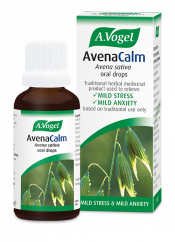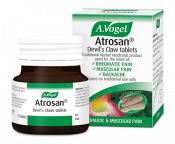Can anxiety make your body hurt?
In 2013 there were over 8.2 million cases of anxiety in the UK, though the number may be higher since these figures were taken1 and we must also acknowledge that many people aren't formally diagnosed with anxiety, though still experience symptoms. This makes the issue much more prevalent than the statistics might suggest.
Anxiety can have a wide impact on day-to-day living, but to find out if anxiety can make your body hurt, this blog looks at:
- The link between anxiety and pain
- What to do about anxiety and pain.
How does anxiety affect pain?
Research shows that the more anxiety or depression experienced by an individual, the more disabling or severely limiting their pain tends to be.2
Pain can accompany anxiety disorders, including Generalised Anxiety Disorder (GAD). It may lead to general aches and pains, or conditions such as fibromyalgia. It can also make problems like arthritis worse.
Other physical symptoms of anxiety include headaches, digestive trouble, fatigue and muscle tension.
It used to be thought that the connection between anxiety and pain was psychological, but now more attention has been given to the idea that it is biological. Some research has indicated, for example, that stress and anxiety reduce the body's ability to modulate pain. A 2014 study concluded that the more stressed an individual was, the less able they were to deal with pain.3
Additionally, when you are anxious, it can cause the muscles to tense up. This indicates that the body is prepared to deal with a physical stressor. We aren't used to being in this state of high alert long term, and so pain and muscle tension can arise as a result. This means the pain that accompanies anxiety tends to be chronic or at least persists longer than we might otherwise expect it to.
Finally, if you are suffering from anxiety, it is less likely you will be getting good quality sleep. The body needs sufficient sleep to allow healing processes to occur; and so, without it, pain can worsen.
There is also evidence to suggest that poor sleep can increase levels of inflammation in the body.4 So, if your anxiety is making sleep difficult, this could be another contributing factor in pain levels.
What helps anxiety?
So, anxiety and pain can often go hand in hand. Fortunately, though, there are a few things you can do to manage both issues.
Seek professional help
Your doctor may be able to advise on therapies to tackle anxiety, such as Cognitive Behavioural Therapy. They may also be able to recommend suitable medications to help both your pain and anxiety.
My Top Tip:

A herbal remedy for mild stress and anxiety may be an option for some people.
"This works great for me. Keeps me relaxed."

Exercise
Lots of research has shown that exercise can reduce anxiety and the symptoms associated with it.5 There are lots of reasons for this, such as:
- It provides a distraction from other worries
- It releases positive hormones
- It reduces tension in the muscles
- It aids sleep
- It brings a sense of achievement.
There is no specific exercise that is best to help ease anxiety – just getting more active than you currently are should have a positive effect. You could try Yoga and Pilates, though, as their focus on controlling your breath can be relaxing.
Deep breathing
When you are feeling anxious, you may benefit from taking time out to practice deep breathing exercises. Doing this at night can encourage a better night's sleep. Alternatively, you can do some during the day whenever you feel most anxious.
Deep breathing slows down the rate of breathing, thus helping you to feel more relaxed. You can do the following either sitting or standing.
- Sit up straight and place both hands on your abdomen. You will feel the rise and fall of your breath.
- With your mouth closed, take a big, slow breath in through your nose – the biggest breath you have taken all day! You will feel the abdomen rise.
- Breathe out through pursed lips. Each time you breathe out it should take 2-3 times longer than your inhale.
- Repeat the steps above for 5-10 minutes. Keeping your hands on the abdomen helps to ensure you are maintaining the correct breathing techniques.
References
1 https://www.mentalhealth.org.uk/statistics/mental-health-statistics-anxiety
2 https://pubmed.ncbi.nlm.nih.gov/25330004/
3 https://pubmed.ncbi.nlm.nih.gov/25250721/
4 https://pubmed.ncbi.nlm.nih.gov/18561896/








